As the third largest bicycle component manufacturer in the world after Shimano and SRAM, Full Speed Ahead (FSA) has a massive presence in the mountain bike scene, both in the aftermarket and for OEM components on complete bikes. The company produces a truly gargantuan range of parts and accessories, including cranksets, wheels, headsets, stems and bars.
During this year’s PressCamp, FSA rolled up with the demo van chock-full of road, gravel and mountain bikes to show off some of their latest components. In particular, the crew had new wider Afterburner wheels, some new cranks and a fully redesigned dropper post to show us.
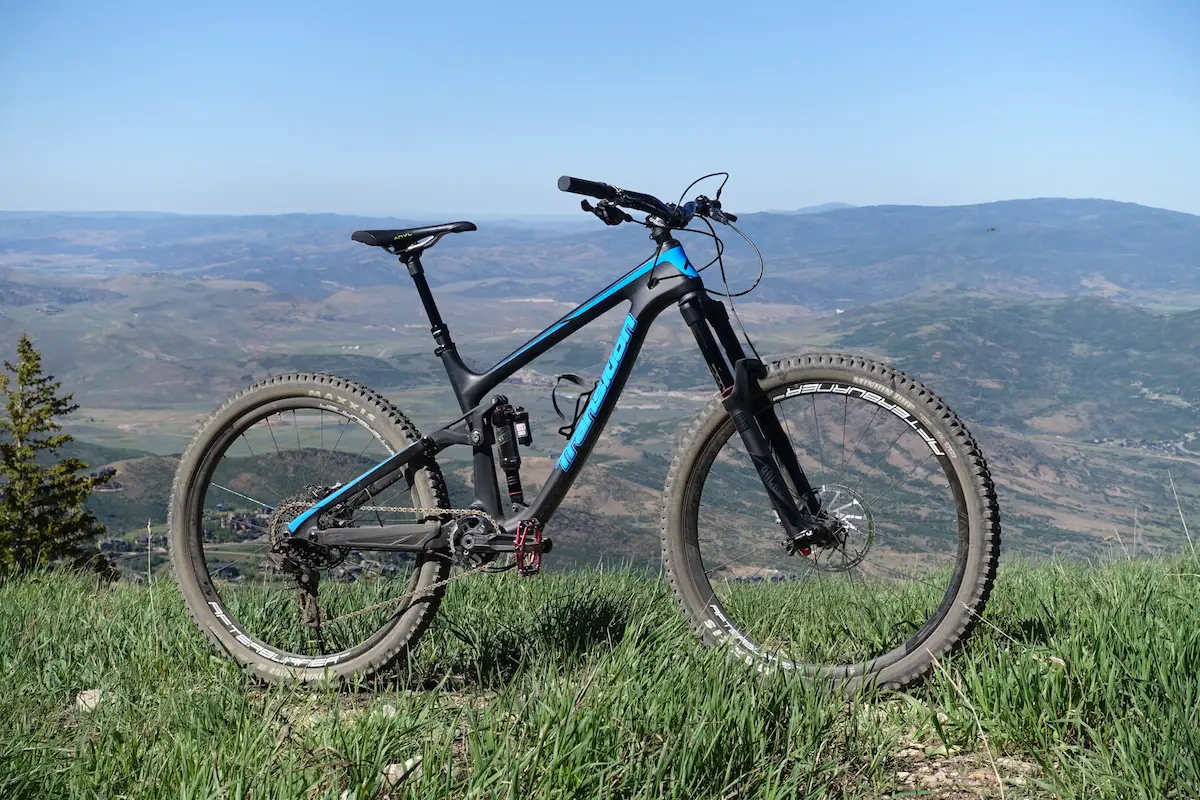
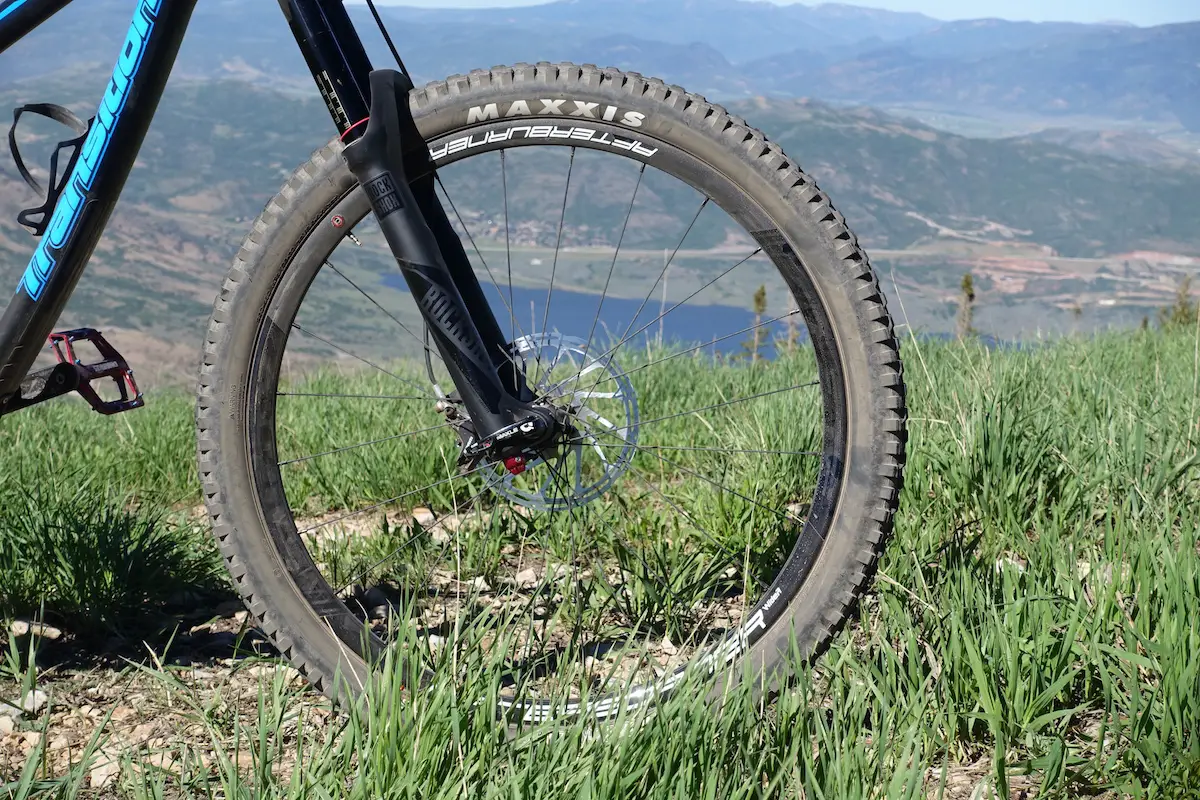
Bolted on to the Patrol Carbon was a set of FSA’s brand new Afterburner WideR wheels. Based on the current Afterburner hoops, the WideR version is (wait for it…) wider. Specifically, it gets a 27mm internal rim width, which puts it into the trail/enduro spectrum for use with tyres between 2.2 – 2.5in wide.
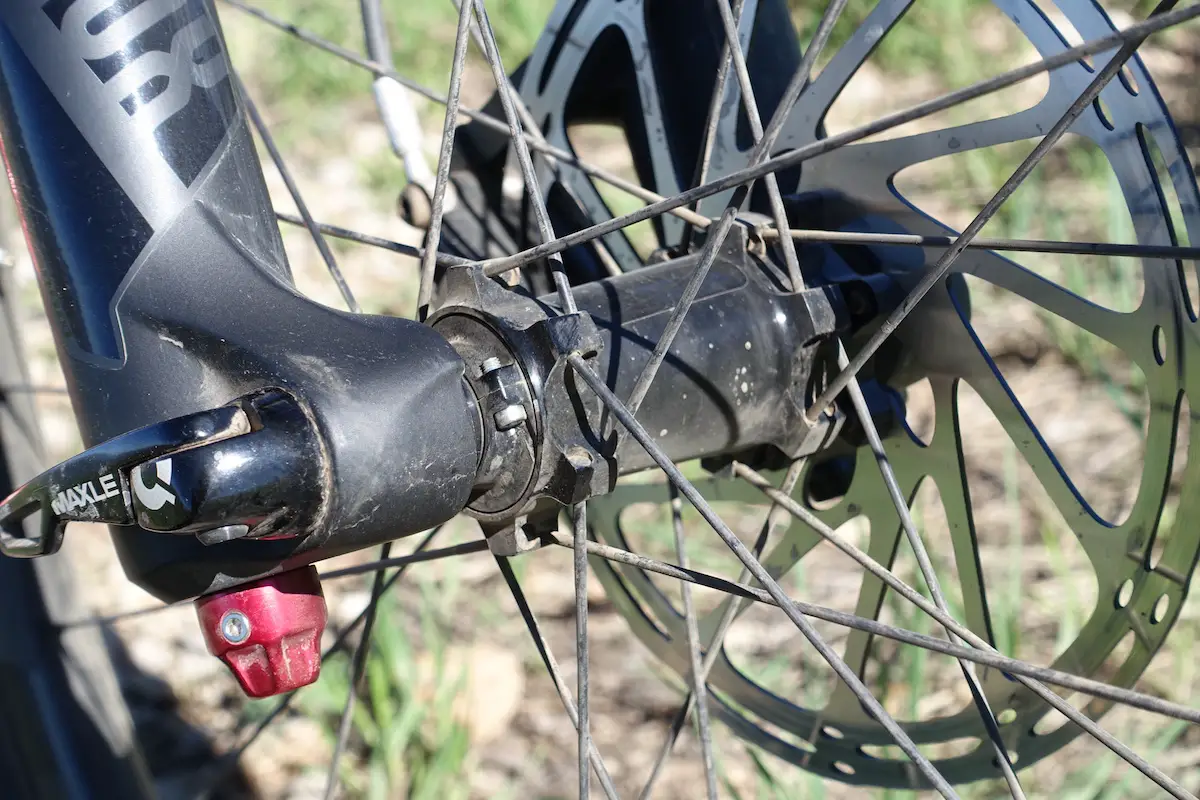
The hubs are made from machined alloy, and they feature adjustable cartridge bearings that use a threaded preload collar on the drive-side that allows you to fine-tune any axial play that may be present as the bearing settles in over time. Hub flanges are also machined to accept straight-pull spokes, which there are 24 of per wheel, laced in a 2x pattern.
In speaking with FSA, it turns out that the R&D team initially began testing with 28 spoke builds, but found the wheels were riding too stiff for their liking. Backing the wheel off to 24 spokes allows for more compliance in the wheel, resulting in less vibrations being transmitted up to the rider’s contact points. Of note is that the 29in version of the Afterburner WideR wheels still use 24 spokes per wheel.
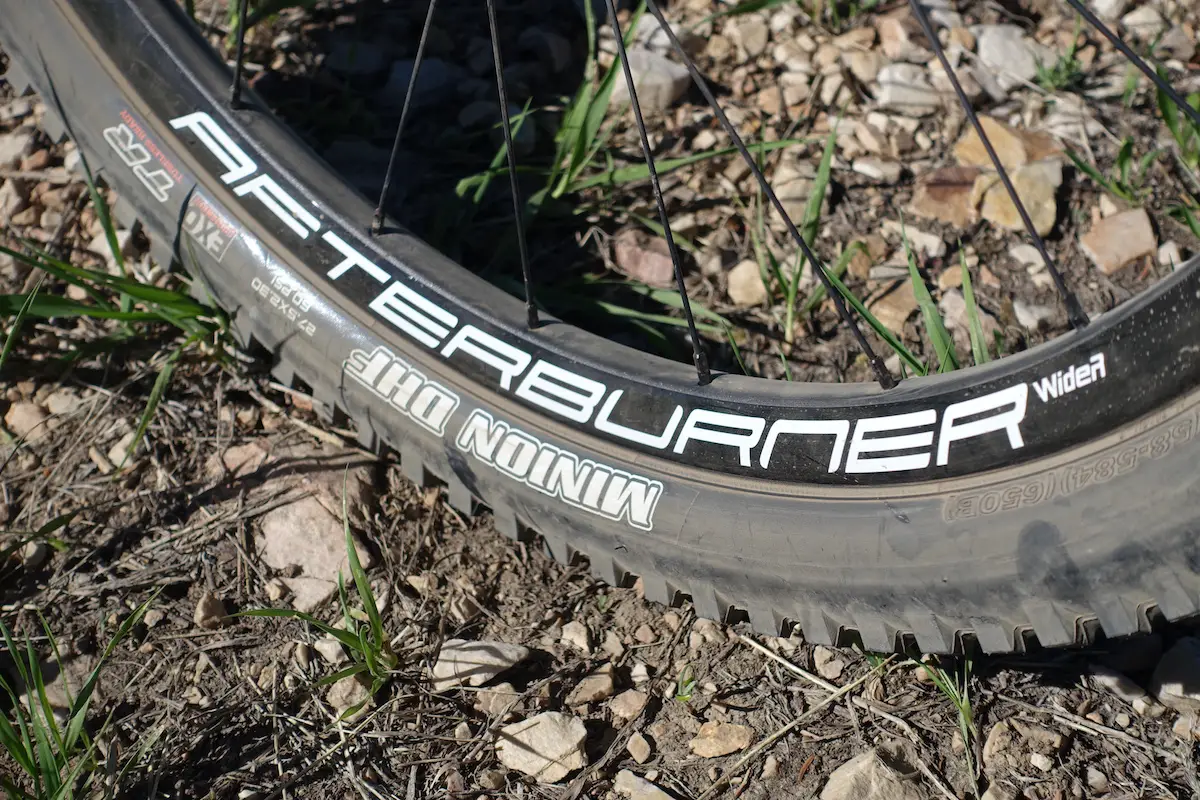
Part of the wheel’s lateral stiffness is a result of the offset rim bed. Offset by 4mm, this design allows FSA to build more even spoke tension from left to right, so that the overall build is more balanced to keep things tighter and in true for longer.
Total wheelset weight is claimed at 1720 grams, and price is $629 USD / €749. No confirmation as of yet on British retail pricing, though with the current Afterburner wheels costing £499, expect the WideR wheels to be close to that figure.
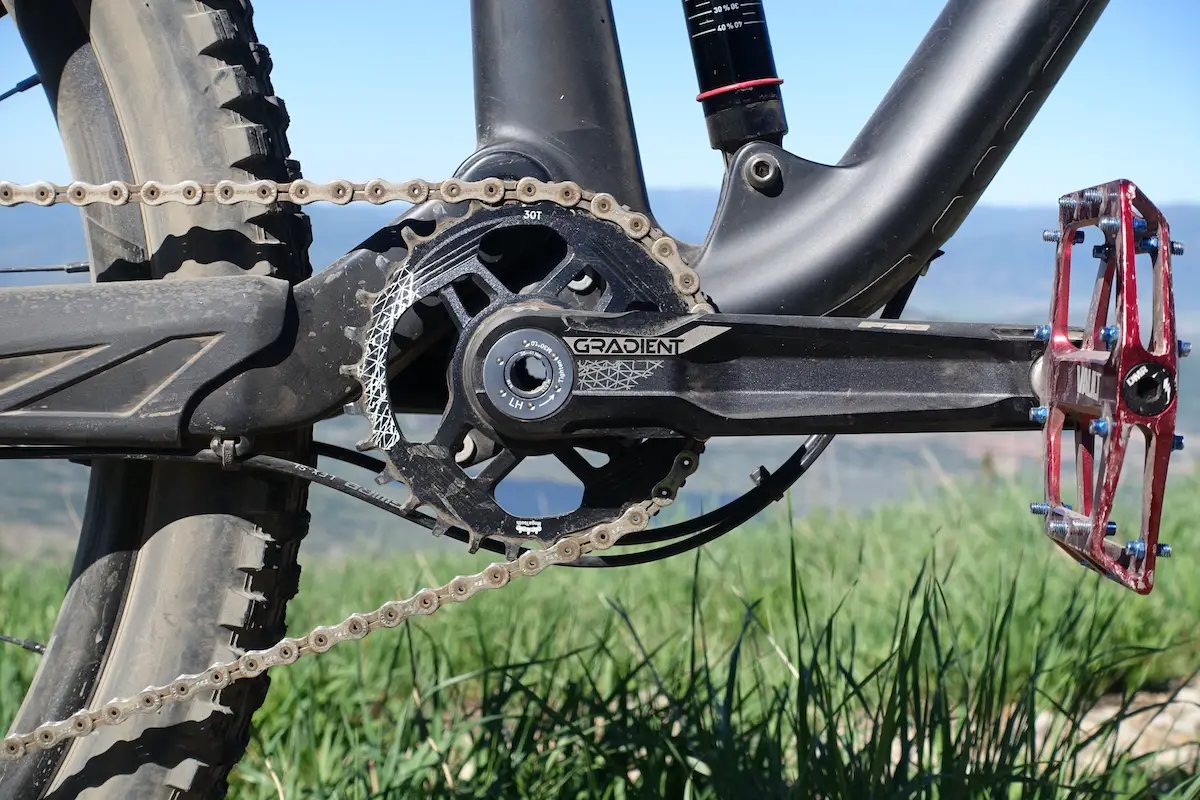
Gradient is FSA’s aggressive trail/enduro line of components, which currently includes stems, handlebars, chain devices and cranks. The latest Gradient cranks are made from high quality forged AL7075 alloy, and are claimed to weigh around 670 grams.
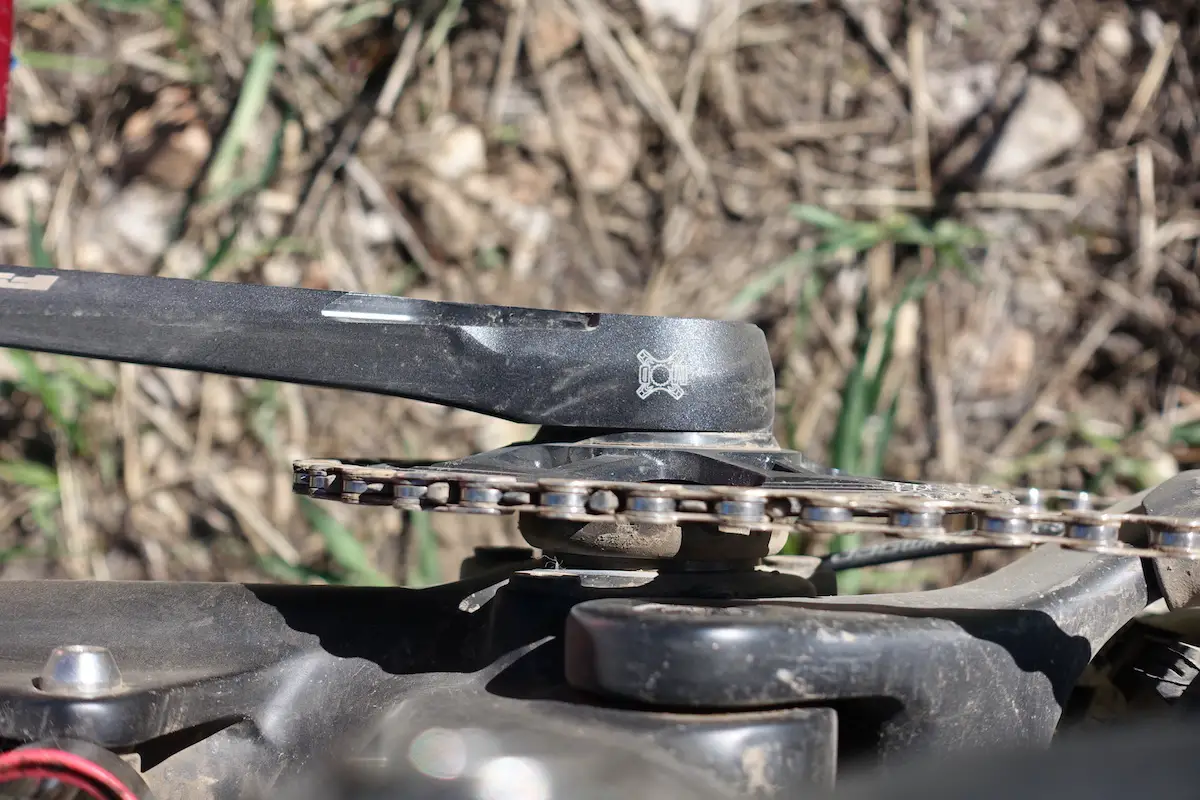
The Gradient cranks use FSA’s new modular chainring design, which allows each mountain bike crank to be swapped between 1x and 2x setups, with numerous options available. The other part of the modular design is the ability to use the cranks with both Boost and non-Boost drivetrain setups, via the use of a simple 3mm spacer. Seen in the above image sandwiched between the crank arm and the chainring, this 3mm spacer can be moved to the inside of the chainring in order to change the chainline to suit a Boost 148x12mm rear end.
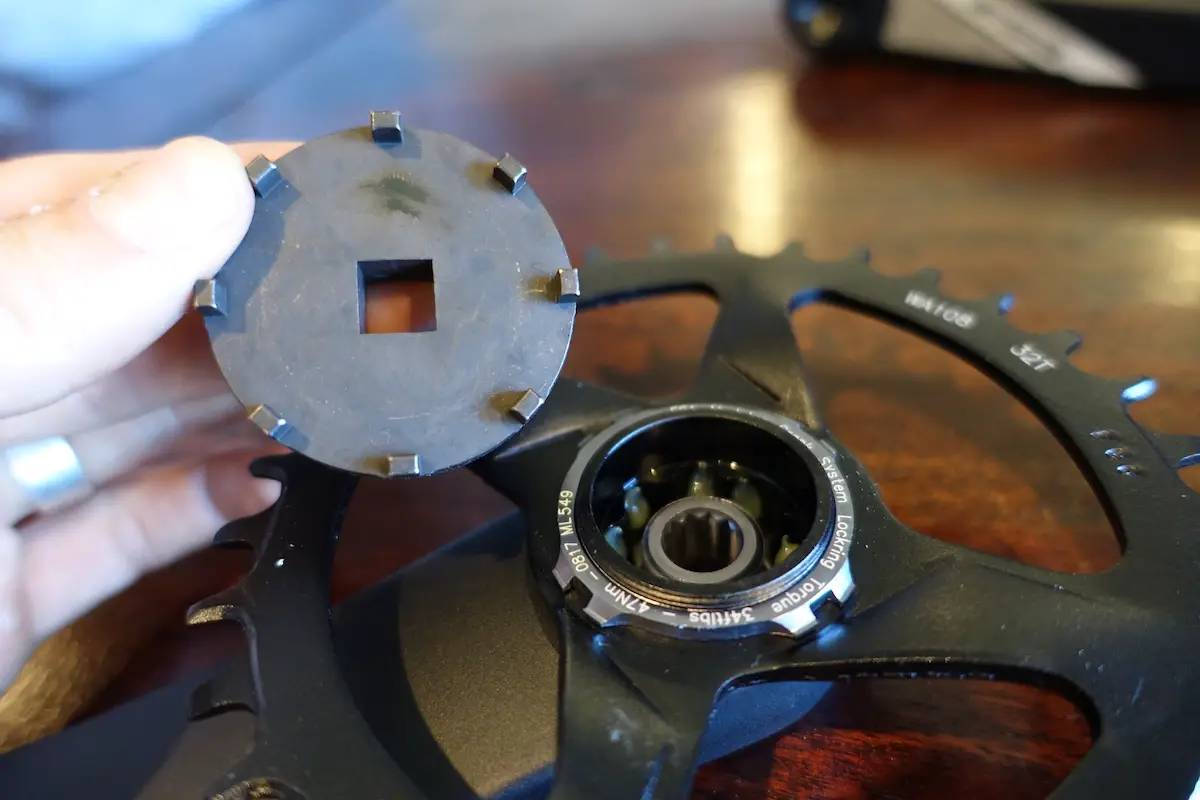
To change chainrings and to move that spacer around, there’s a threaded lockring on the inside of the chainring, and a special eight-pin tool that keys into the locking to tighten or remove it.
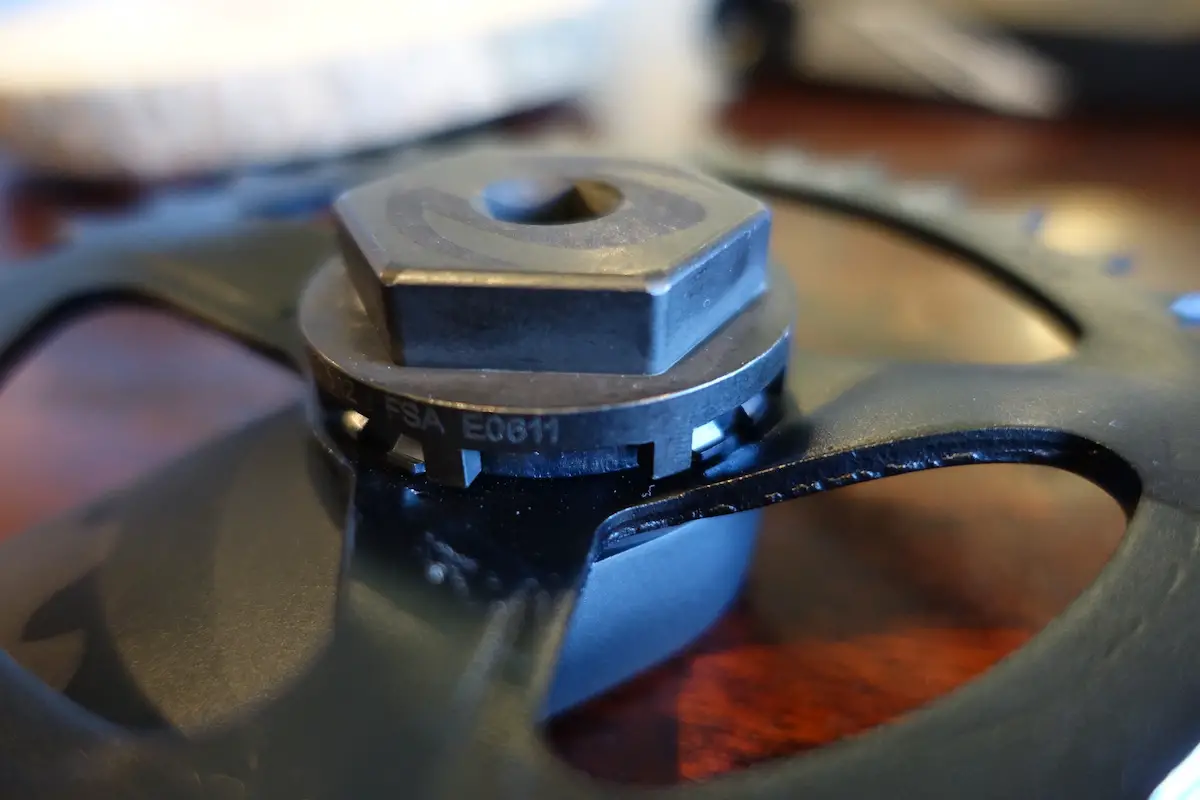
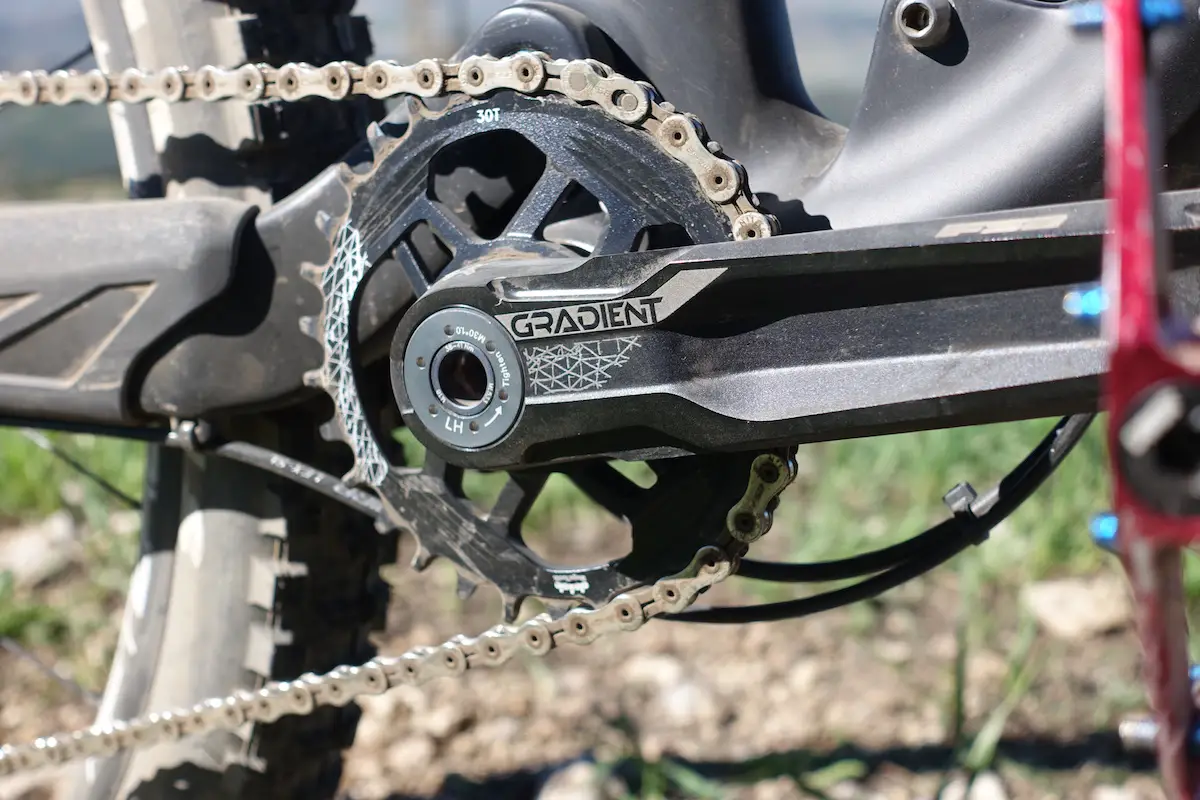
The Gradient cranks can be had in 170mm or 175mm lengths, and chainring options are available in 30t, 32t and 34t sizes. The chainrings use FSA’s Megatooth thick-thin profile, which also features taller teeth that ‘hook’ into the chain more aggressively. Chainrings are currently 10 or 11-speed compatible, and you can get them in alloy and steel versions.
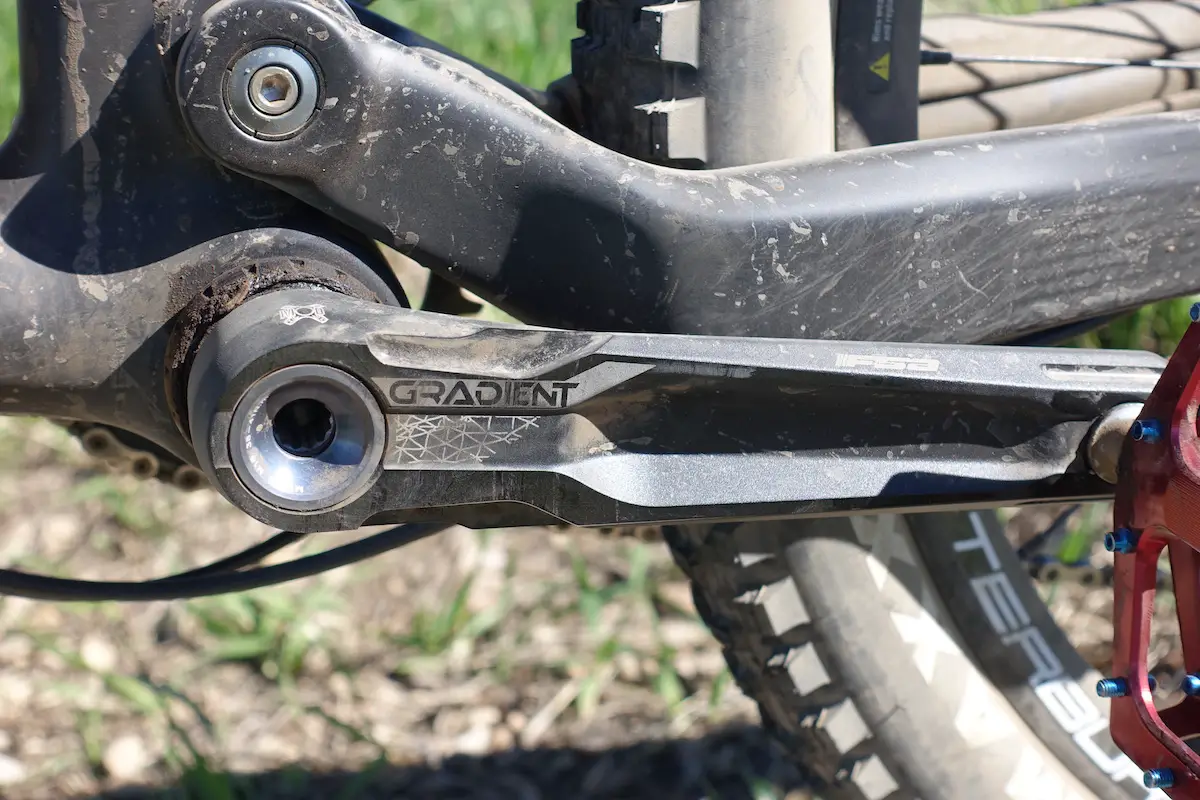
As for the axle, its a 30mm alloy jobber, but it isn’t of the BB30 variety. It’s BB392 EVO, which is actually quite a neat standard that offers compatibility with a wide variety of frames. Measuring 13mm longer than a standard BB30/PF30 axle, the BB392 EVO axle is the same width spindle that you’ll find on a standard Shimano mountain bike crank. The reason for that? It means FSA can supply a different bottom bracket to make the cranks compatible with both PF30 frames, and with regular threaded bottom bracket shells and PF92 frames too. All while providing the weight and stiffness benefits of the 30mm diameter spindle.
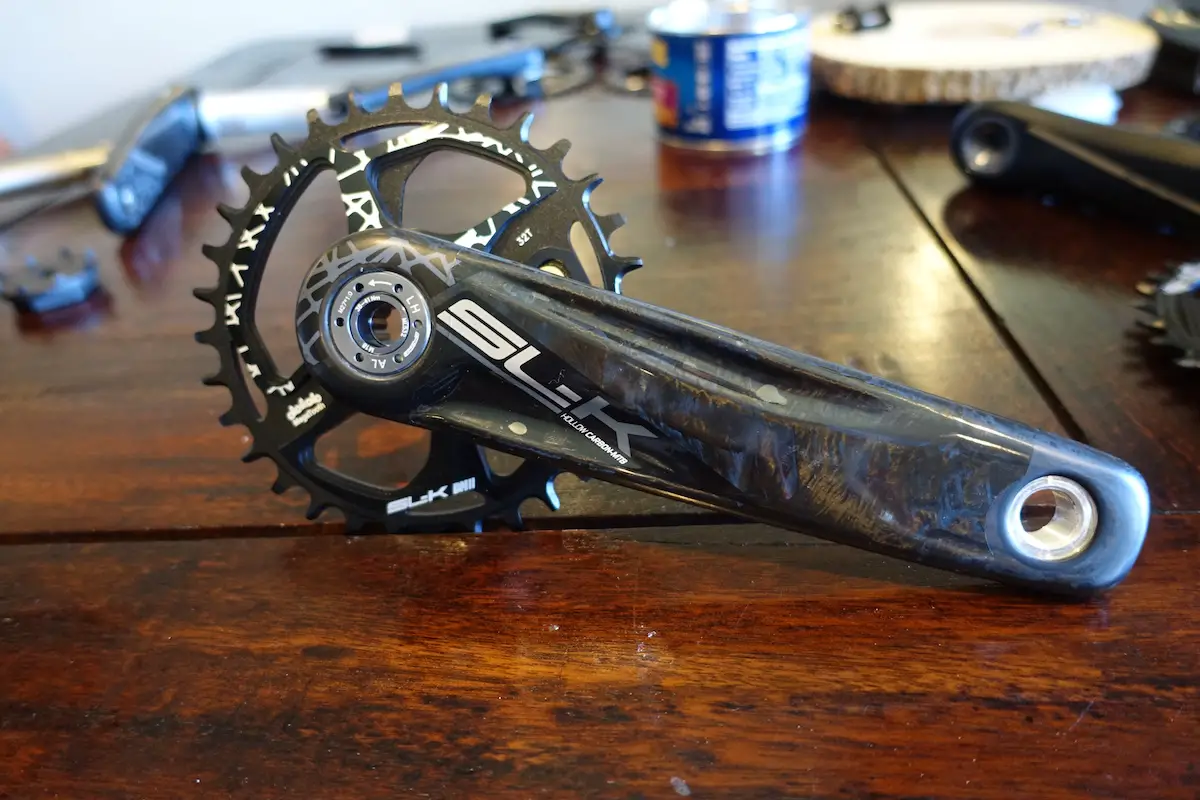
FSA has numerous crank options through the range that are now built with the modular standard. One of those is the top-end SL-K carbon crankset, which features the same adjustable chainline for use with Boost or non-Boost setups, and the ability to easily swap between 1x and 2x setups. By use of UD carbon fibre, FSA has dropped weight down to just 485 grams, making this one hellishly light set of cranks.
Also like the Gradient cranks, the SL-K gets a BB392 EVO spindle, making it compatible with a wider range of frames by way of changing out the bottom bracket.
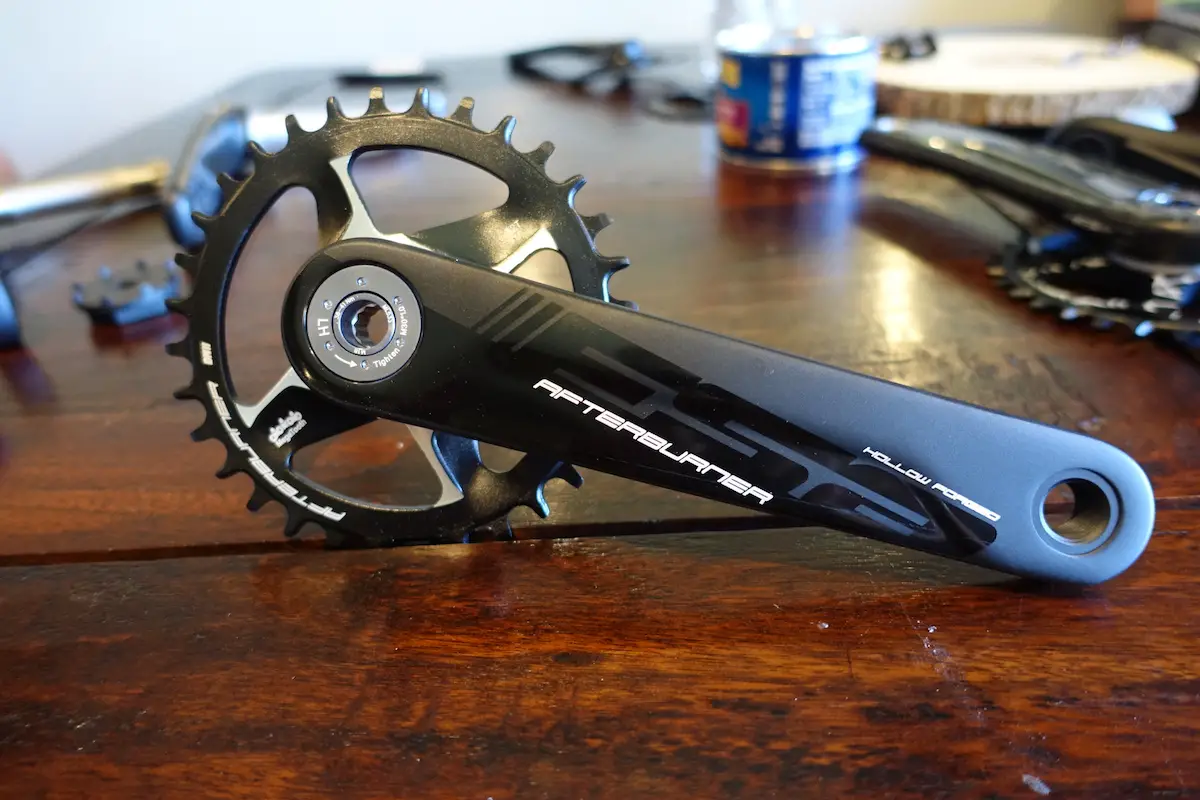
Sitting somewhere between the SL-K carbon cranks and the Gradient alloy cranks is the Afterburner crankset. Like the Gradients, these are made from alloy, but are hollow forged to keep the weight down. Compared to previous Afterburner cranks, there is no pinchbolt used for the non-drive crank arm, but instead it uses the modular BB392 EVO axle design, with a 30mm diameter alloy spindle that uses a keyed design that connects with corresponding grooves in each crank arm.
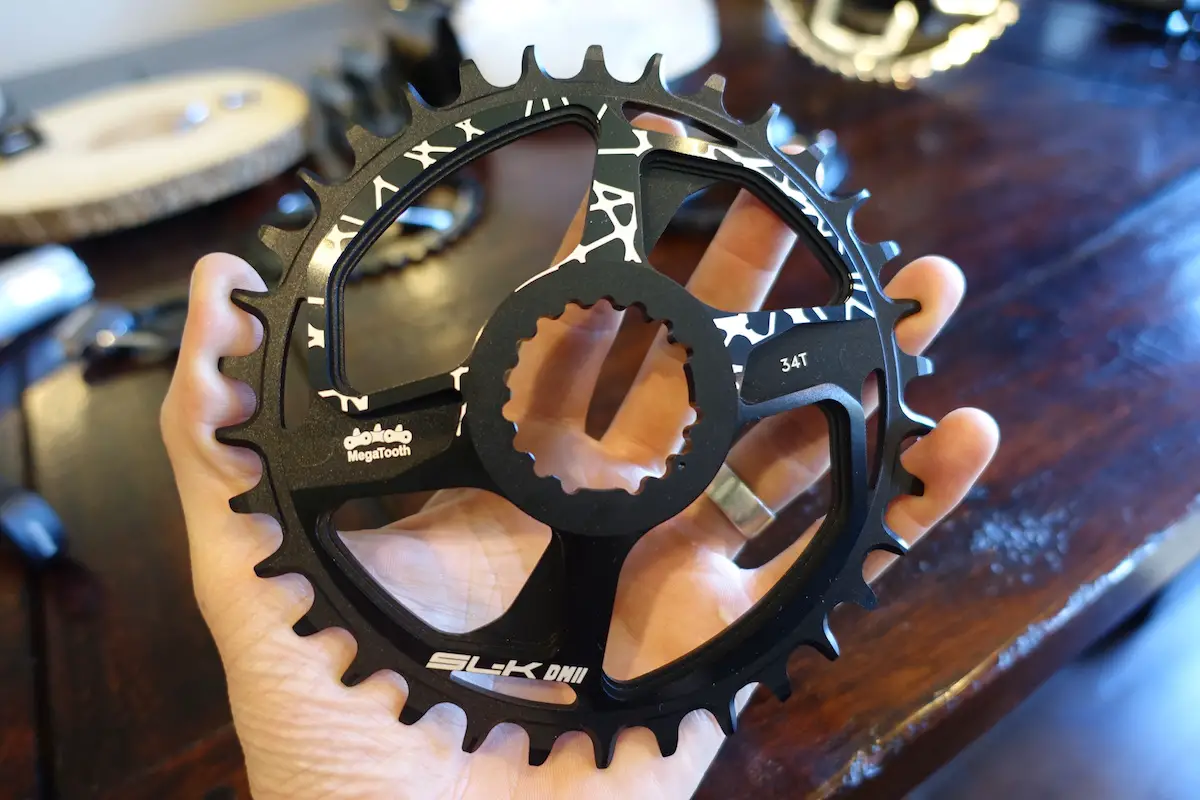
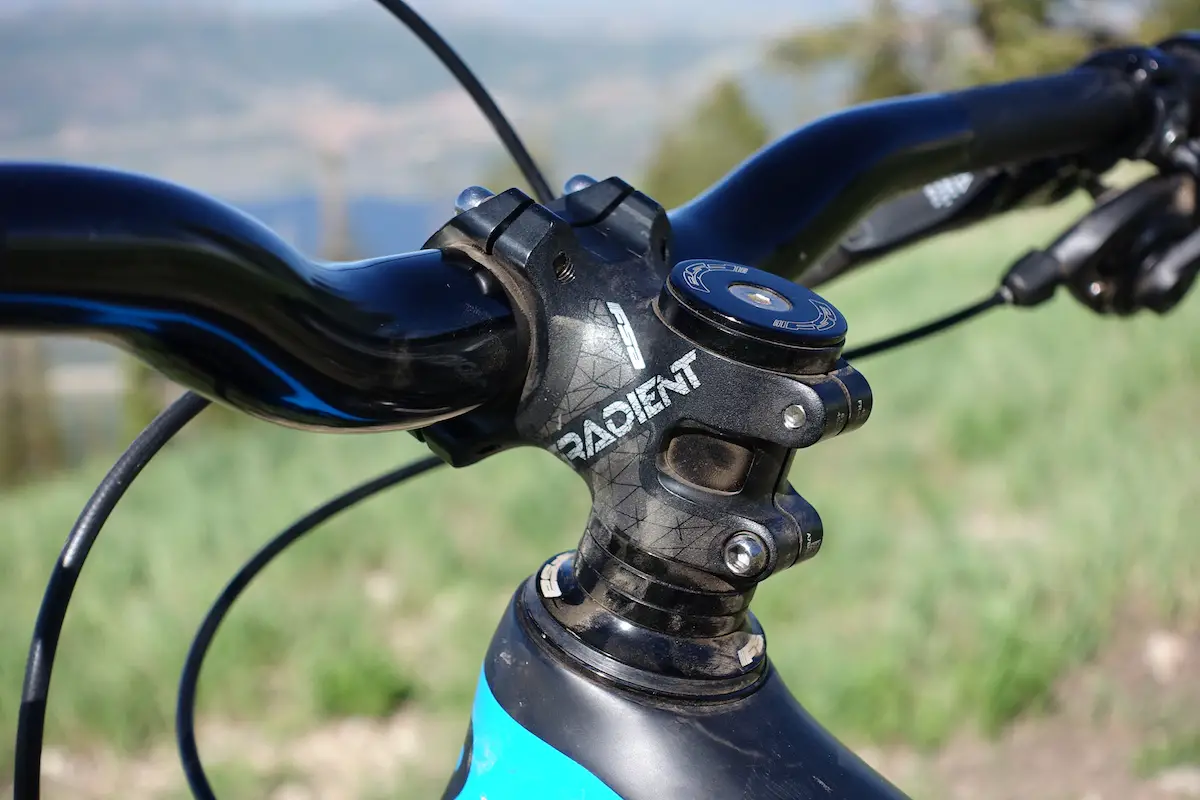
Available in 45mm and 60mm lengths, the Gradient stem is a tough little nugget made from 3D forged and CNC machined AL2014 alloy. The stem uses a 4-bolt face place with stainless steel hardware, and has a 6° rise that can be flipped to drop the bars down.
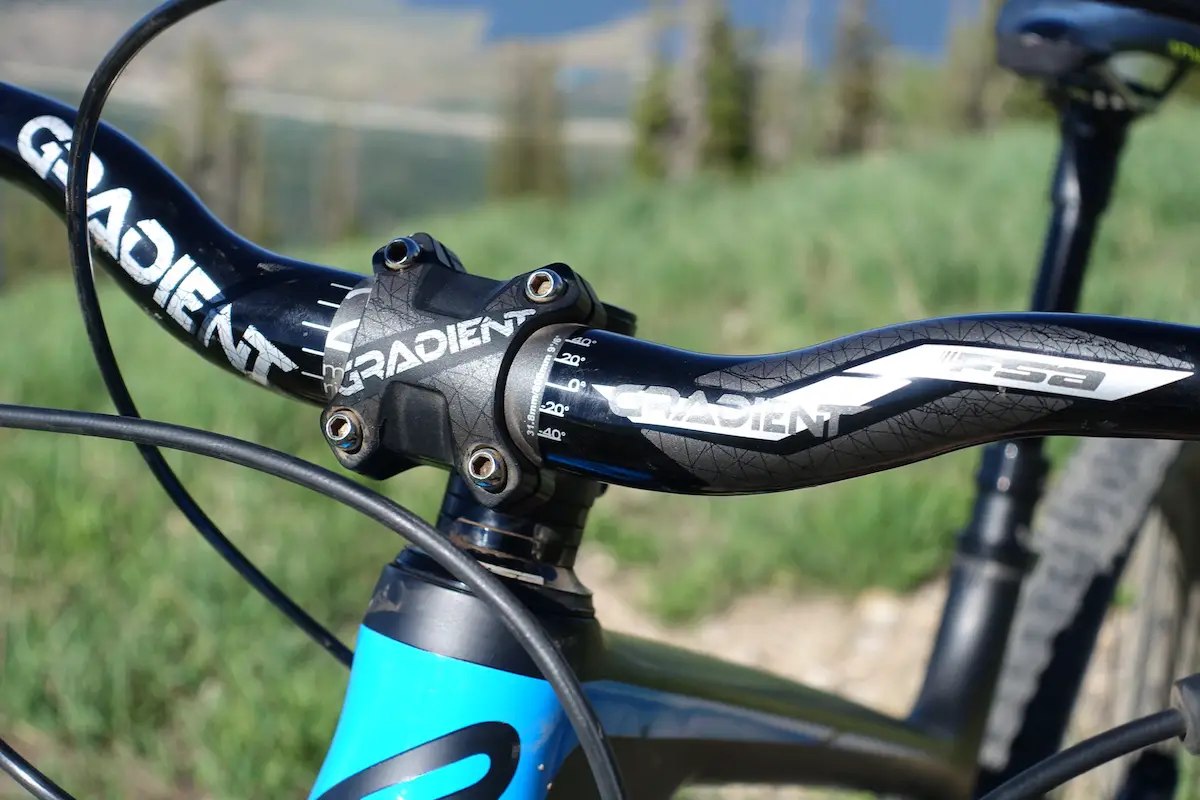
The matching Gradient handlebars feature an 800mm width and rise options of 25mm or 40mm (pictured). Made from AL7075/T6, the Gradient bars feature graphics for accurately adjusting the rotational position of the bars relative to the stem, and the alloy is shot-peened to increase durability.
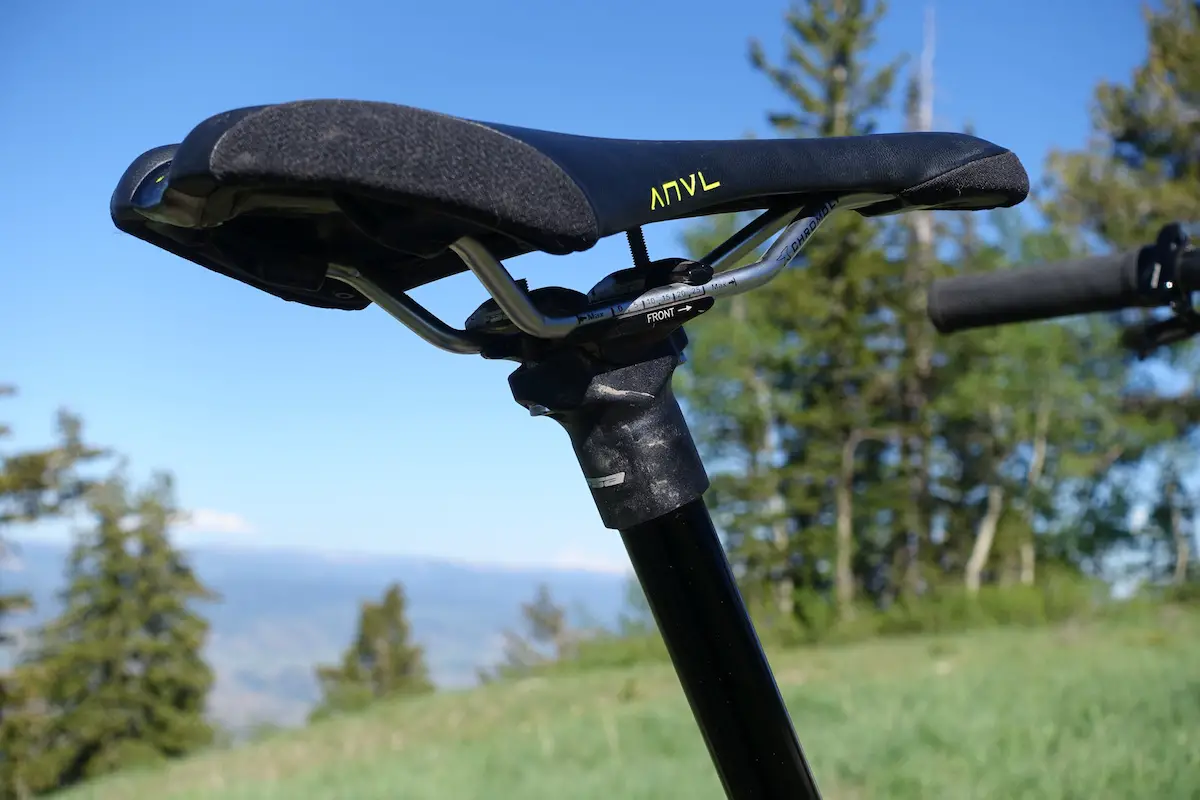
First announced at the Taipei Bike Show last year the new FSA dropper post (or ‘Adjustable Seatpost’ as the company refers to it on the website) is built as a price-conscious option, coming in at $248 USD / €259 for the post with remote and cabling. The dropper has been around for a wee while now, but FSA has updated it with a new alloy cartridge that’s helped to lower weight by some 90 grams, making for a total claimed weight of 650 grams. The dropper retains the twin-bolt seat clamp for locking down the saddle rails, and it features internal cable routing.
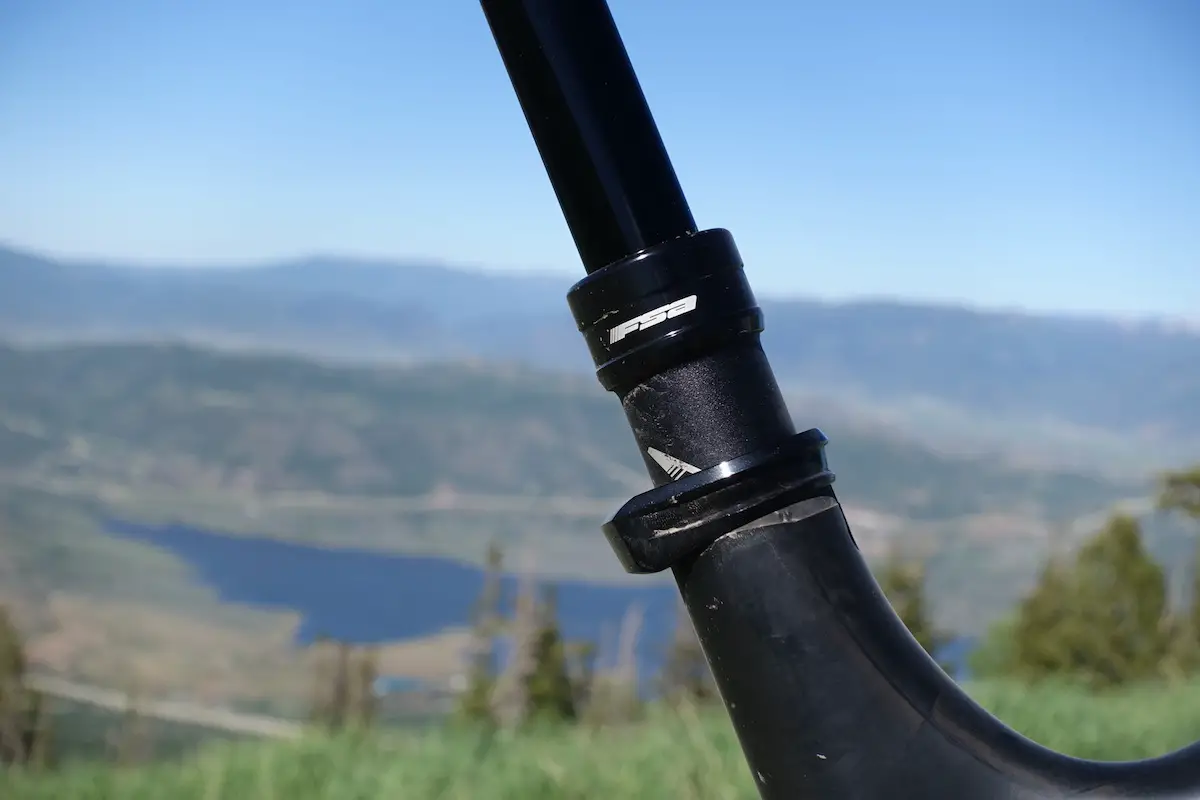
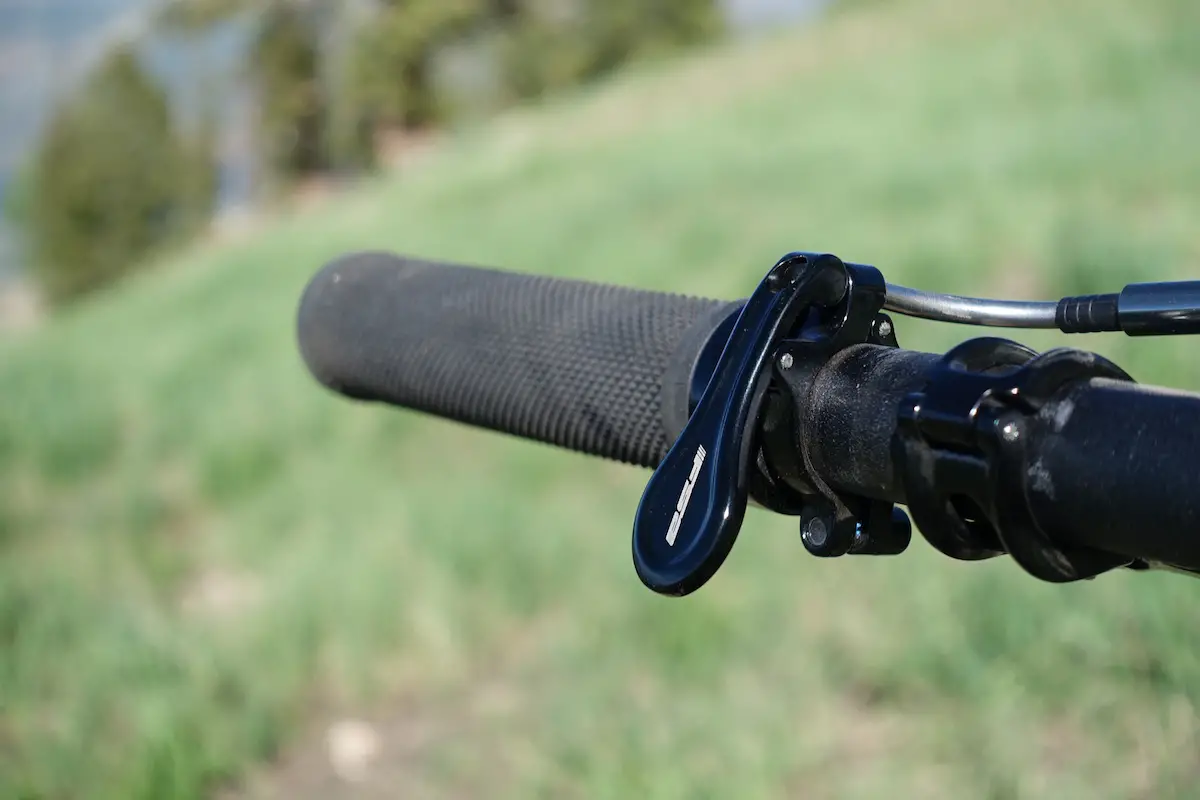
While I didn’t have loads of time aboard the Transition Patrol demo bike, the time I did spend on it left me impressed with the smooth action of the new FSA dropper post. Return speed is on the quicker side, and weighting the saddle to compress it felt easy. While I wasn’t sure I’d like the remote given it’s not 1x specific and under the bar, the paddle itself is easy to hit and its rounded edges reduce any chance of pressure points. It also has a good amount of leverage to overcome cable friction, though there is a fair amount of lateral wiggle in the paddle’s pivot. It didn’t seem to cause a problem on the trail, but it did seem a little cheap compared to the rest of the post.
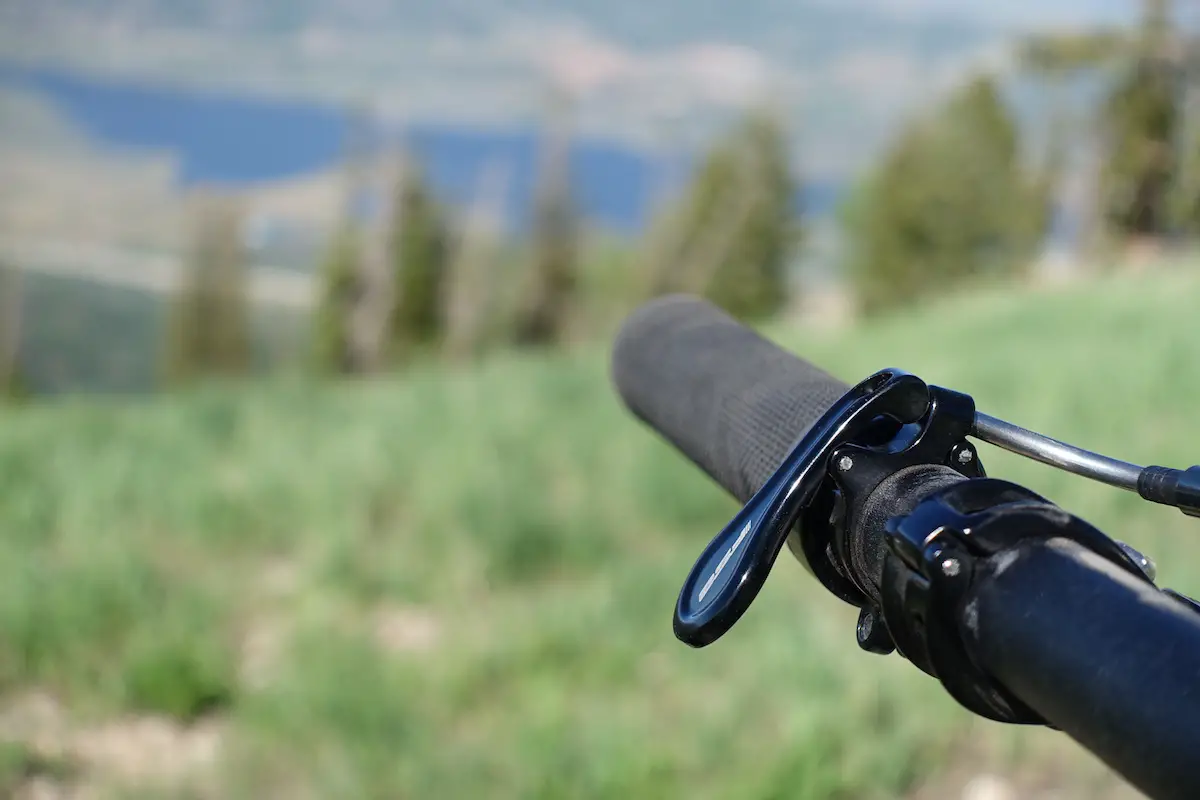
For more information on the FSA component line and UK pricing, head to the Windwave website.





